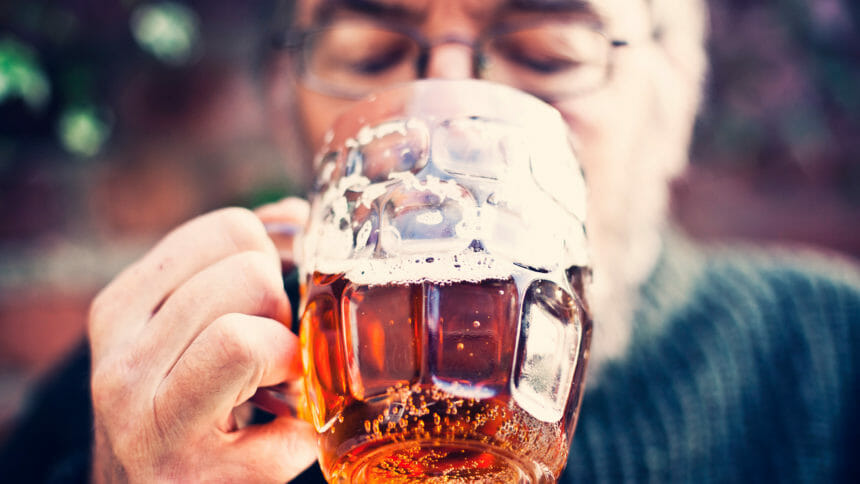
New research may have senior living operators proceeding more carefully with offerings such as in-community bars and happy hours.
More than 10% of adults aged 65 or more years binge drink, and the percentage has increased over the past several years, according to a study published in the Journal of the American Geriatrics Society.
The habit — defined by the National Institute on Alcohol Abuse and Alcoholism as five or more drinks on the same occasion for men and four or more drinks for women — puts older adults at a higher risk for falling and other health issues, said the authors, researchers at New York University and the University of California, San Diego.
“As the body changes with aging, it becomes much more sensitive to alcohol, and tolerance to alcohol generally decreases,” Benjamin Han, M.D., M.P.H., the study’s lead author and an assistant professor in the Division of Geriatric Medicine and Palliative Care at the NYU School of Medicine, told McKnight’s Senior Living. Excess alcohol consumed via binge drinking, even if done infrequently, may exacerbate disease or interact with prescribed medications, he said.
Han and colleagues examined data from 10,927 older adults who participated in the National Survey on Drug Use and Health between 2015 and 2017. They estimate that 10.6% of older adults binge drank in the past month, an increase compared with earlier studies. In the decade leading up to the data used in this study (2005 to 2014), they said, the rate of binge drinking among adults 65 and older was between 7.7 and 9%.
Binge drinkers were more likely to be male, be African American and have less than a high school education than people who were not binge drinkers, the researchers found. They also were more likely to have visited the emergency department in the past year. As with previous studies, this one did not find associations between binge drinking and other mental health disorders.
Binge drinkers also were more likely to be current tobacco or cannabis users, the researchers found.
“The association of binge drinking with cannabis use has important health implications. Using both may lead to higher impairment effects,” said Joseph Palamar, Ph.D., M.P.H., the study’s senior author and an associate professor at NYU. “This is particularly important as cannabis use is becoming more prevalent among older adults, and older adults may not be aware of the possible dangers of using cannabis with alcohol,” he added.
Older adults should discuss what the risks of alcohol are for them specifically, given their medical diseases and prescribed medications, Han said.
“Some adults with specific chronic medical conditions or who take certain medications probably should avoid alcohol completely,” he added. “I would also recommend all older adults keep in mind that the recommendation from the National Institutes of Health is that both men and women over 65 are generally advised to have no more than three drinks on any day and [no more than] seven per week. Using alcohol in excess of this can greatly increase the risk for alcohol-related harms for older adults.”
Signs that an older resident may be having problems with alcohol, Han said, include frequent falls, difficulty in stopping drinking after one or two drinks, drinking in the morning, driving after drinking or continued drinking despite harm.



